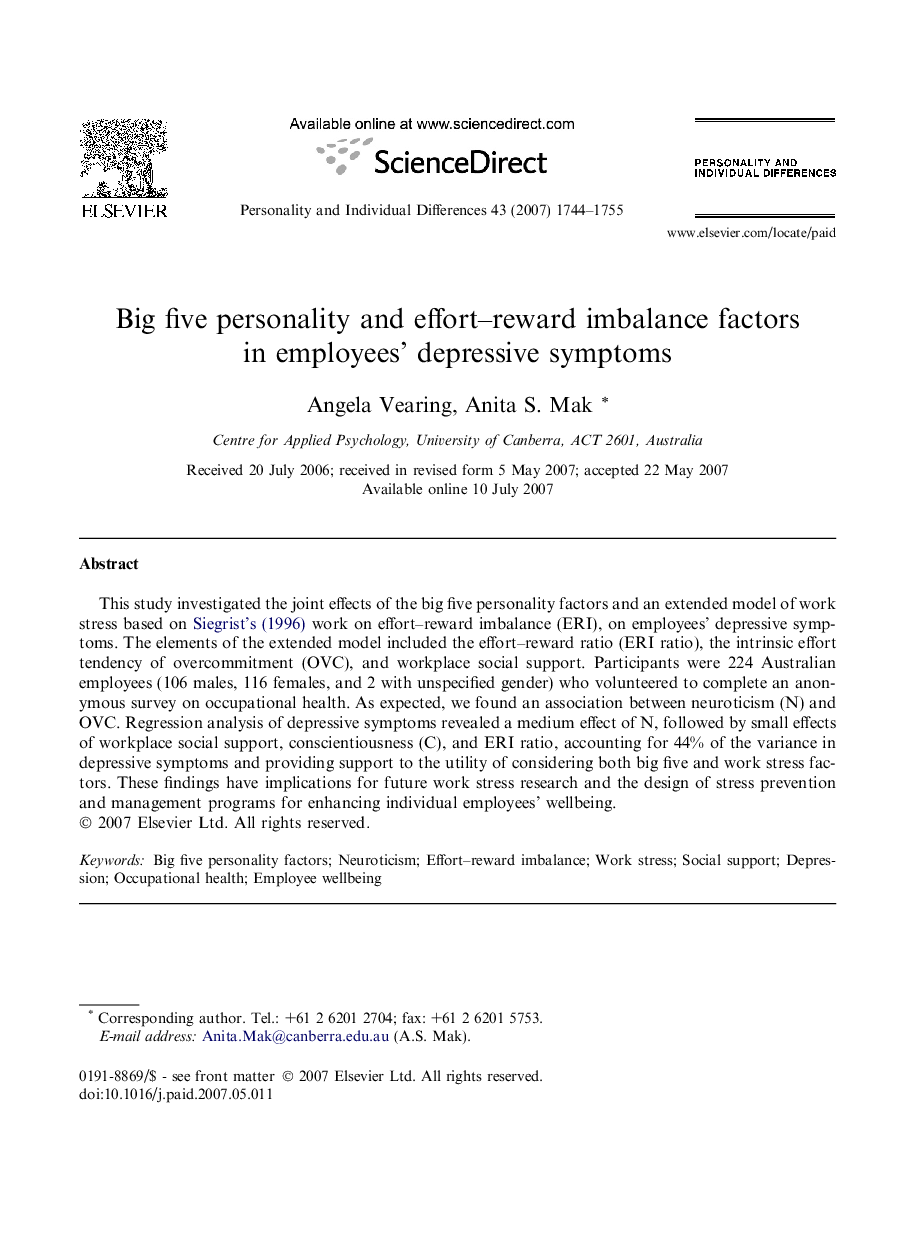| Article ID | Journal | Published Year | Pages | File Type |
|---|---|---|---|---|
| 892902 | Personality and Individual Differences | 2007 | 12 Pages |
This study investigated the joint effects of the big five personality factors and an extended model of work stress based on Siegrist’s (1996) work on effort–reward imbalance (ERI), on employees’ depressive symptoms. The elements of the extended model included the effort–reward ratio (ERI ratio), the intrinsic effort tendency of overcommitment (OVC), and workplace social support. Participants were 224 Australian employees (106 males, 116 females, and 2 with unspecified gender) who volunteered to complete an anonymous survey on occupational health. As expected, we found an association between neuroticism (N) and OVC. Regression analysis of depressive symptoms revealed a medium effect of N, followed by small effects of workplace social support, conscientiousness (C), and ERI ratio, accounting for 44% of the variance in depressive symptoms and providing support to the utility of considering both big five and work stress factors. These findings have implications for future work stress research and the design of stress prevention and management programs for enhancing individual employees’ wellbeing.
